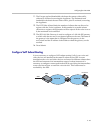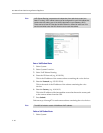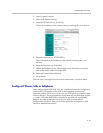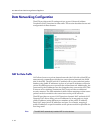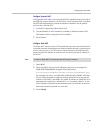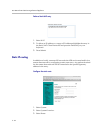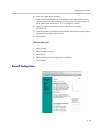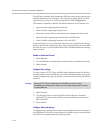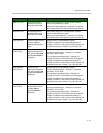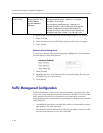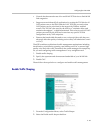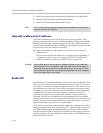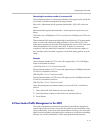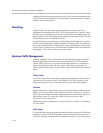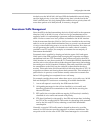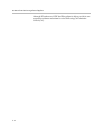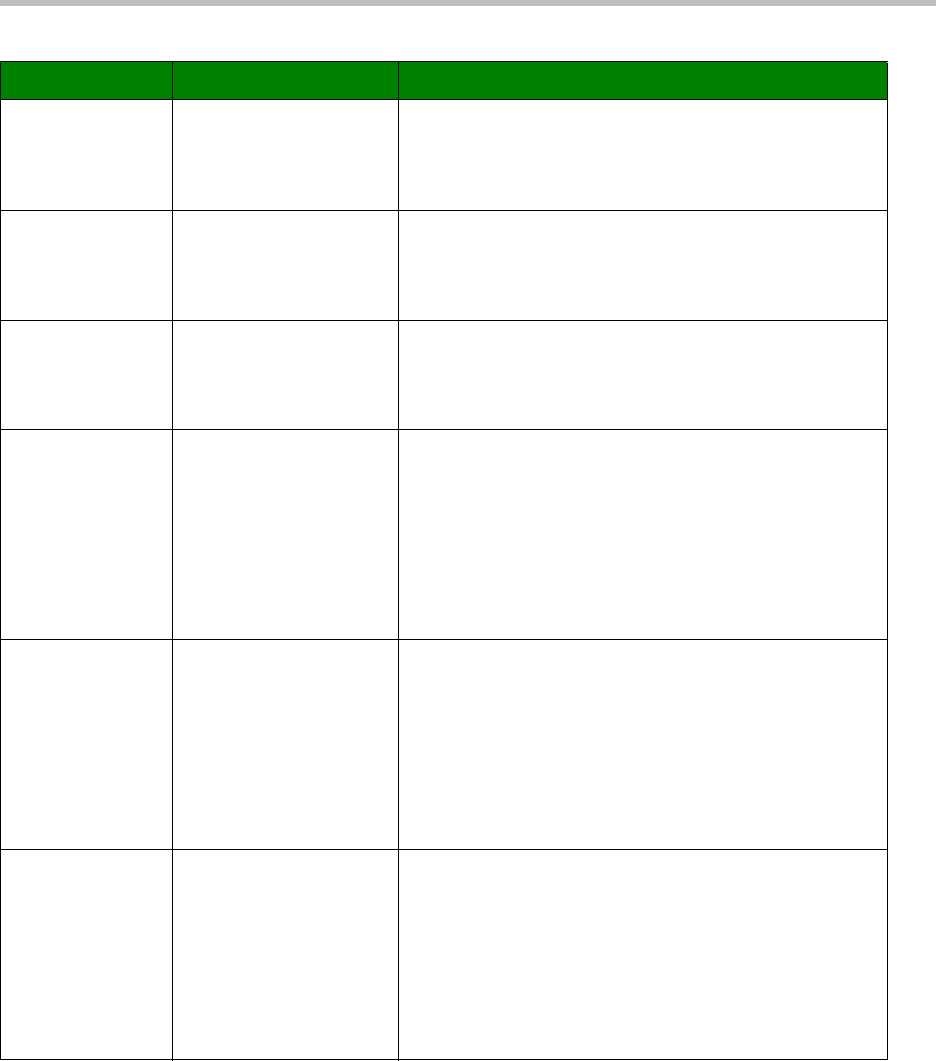
Configuring the V2IU 4350
3 - 67
Action Description Input format
Allow TCP Port Allows traffic with the
specified TCP port to
terminate on the 4350.
*Valid values range from 1 through 65535. *Multiple
entries are separated by a space
*Range value specified by the : character. For example,
25:50 means perform the action on ports 25 through 50
Allow UDP Port Allows traffic with the
specified UDP port to
terminate on the 4350.
*Valid values range from 1 through 65535. *Multiple
entries are separated by a space
*Range value specified by the : character. For example:
25:50 means perform the action on ports 25 through 50
Deny Hosts (IP) Denies all traffic with the
source IP address
matching the specified
hosts
*Multiple entries are separated by a space
*Classful IP addresses are assumed by default. For
example: 192.168.3.1 uses a class c mask. Subnets can
be specified using the / notation. E.g. 192.168.3.1/24
Deny Hostwise
TCP (IP-Port)
Denies all traffic
matching the specified
TCP port numbers and
the specified source IP
addresses
*Multiple entries are separated by a space
*Port are specified using a - character. For example:
192.168.3.1-23 for Telnet.
*Port ranges are specified using a : character. For
example: 192.168.3.1-23:50 means port 23 through 50
*Classful IP addresses are assumed by default. For
example: 192.168.3.1 uses a class c mask. Subnets can
be specified using the / notation. E.g. 192.168.3.1/24
Deny Hostwise
UDP (IP-Port)
Denies all traffic
matching the specified
UDP port numbers and
the specified source IP
addresses
*Multiple entries are separated by a space
*Port are specified using a - character. For example:
192.168.3.1-23 for Telnet.
*Port ranges are specified using a : character. For
example: 192.168.3.1-23:50 means port 23 through 50
*Classful IP addresses are assumed by default. For
example: 192.168.3.1 uses a class c mask. Subnets can
be specified using the / notation. E.g. 192.168.3.1/24
Allow Hostwise
TCP (IP-Port)
Allows all traffic matching
the specified TCP port
numbers and the
specified source IP
addresses
*Multiple entries are separated by a space
*Port are specified using a - character. For example:
192.168.3.1-23 for Telnet.
*Port ranges are specified using a : character. For
example: 192.168.3.1-23:50 means port 23 through 50
*Classful IP addresses are assumed by default. For
example: 192.168.3.1 uses a class c mask. Subnets can
be specified using the / notation. E.g. 192.168.3.1/24



